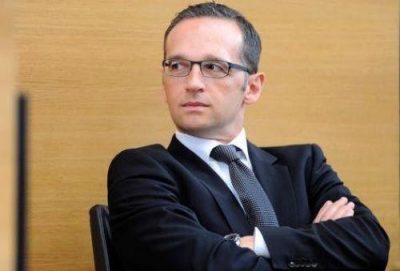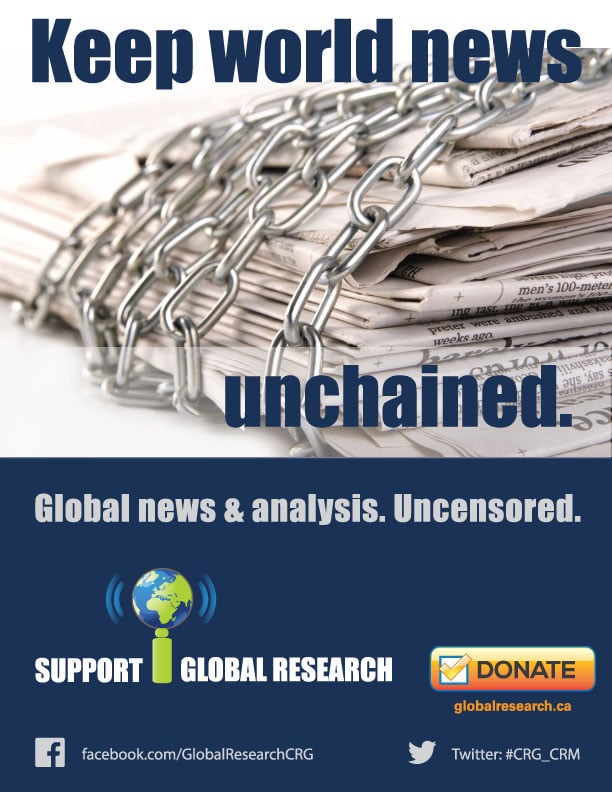Germany Calls for Global Payment System Independent of the US

Note to readers: please click the share buttons above
Featured image: German foreign minister Heiko Maas (Source: Zero Hedge)
In a stunning vote of “no confidence” in the US monopoly over global payment infrastructure, Germany’s foreign minister Heiko Maas called for the creation of a new payments system independent of the US that would allow Brussels to be independent in its financial operations from Washington and as a means of rescuing the nuclear deal between Iran and the west.
Writing in the German daily Handelsblatt, Maas said
“Europe should not allow the US to act over our heads and at our expense. For that reason it’s essential that we strengthen European autonomy by establishing payment channels that are independent of the US, creating a European Monetary Fund and building up an independent Swift system,” he wrote, cited by the FT.
Maas said it was vital for Europe to stick with the Iran deal.
“Every day the agreement continues to exist is better than the highly explosive crisis that otherwise threatens the Middle East,” he said, with the unspoken message was even clearer: Europe no longer wants to be a vassal state to US monopoly over global payments, and will now aggressively pursue its own “Swift” network that is not subservient to Washington’s every whim.
Swift, a Belgium-based global payment network, enables financial institutions worldwide to send and receive information about financial transactions. The system’s management claims Swift is politically neutral and independent, although it has previously been used to block transactions and enforce US sanctions against various countries, most notably Iran. In 2012, the Danish newspaper Berlingske wrote that US authorities managed to seize money being transferred from a Danish businessman to a German bank for a batch of US-sanctioned Cuban cigars. The transaction was made in US dollars, which allowed Washington to block it.
According to Thorsten Benner, director of the Global Public Policy Institute, a Berlin-based think-tank, Maas’s intervention was the “strongest call yet for EU financial and monetary autonomy vis-à-vis US.”
The German foreign minister’s article highlights the depth of the dilemma facing European politicians as they struggle to keep the Iran deal alive while coping with the fallout of US sanctions imposed by Mr Trump against companies doing business with Tehran.
Maas also called for the creation of a “balanced partnership” with the US in which the Europeans filled the gaps left where the US withdrew from the world. Europe must, he said, “form a counterweight when the US crosses red lines”.
As the FT adds, the EU has vowed to protect European businesses from punitive measures adopted by Washington, but that has failed to convince EU companies, who are more concerned about maintaining their access to the lucrative US market than in the more modest opportunities presented by Iran.
Last month Washington rebuffed a high-level European plea to exempt crucial industries from sanctions. Mike Pompeo, US secretary of state, and Steven Mnuchin, Treasury secretary, formally rejected an appeal for carve-outs in finance, energy and healthcare made by ministers from Germany, France, the UK and the EU.
Swift is also affected: unless it wins an exemption from sanctions, it will be required by the US to cut off targeted Iranian banks from its network by early November or face possible countermeasures against both its board members and the financial institutions that employ them. These could include asset freezes and US travel bans for the individuals, and restrictions on banks’ ability to do business in the US.
Maas’s stark warning against US domination of global payments comes with relations between Germany and the US in their worst state for decades. Mr Trump has chastised Berlin over its large trade surplus, its relatively low military spending and its support for Nord Stream 2, a new gas pipeline that will bring Russian gas directly to Germany.
Meanwhile, Berlin has looked on in dismay as Mr Trump has withdrawn the US from the Iran deal and the Paris climate treaty, imposed import tariffs on EU steel and aluminium and appeared to question America’s commitment to Nato.
In short: Europe has finally had enough and it plans on hitting back at Trump where it truly hurts: the money.
 Can you help us keep up the work we do? Namely, bring you the important news overlooked or censored by the mainstream media and fight the corporate and government propaganda, the purpose of which is, more than ever, to “fabricate consent” and advocate war for profit.
Can you help us keep up the work we do? Namely, bring you the important news overlooked or censored by the mainstream media and fight the corporate and government propaganda, the purpose of which is, more than ever, to “fabricate consent” and advocate war for profit.
We thank all the readers who have contributed to our work by making donations or becoming members.
If you have the means to make a small or substantial donation to contribute to our fight for truth, peace and justice around the world, your gesture would be much appreciated.

